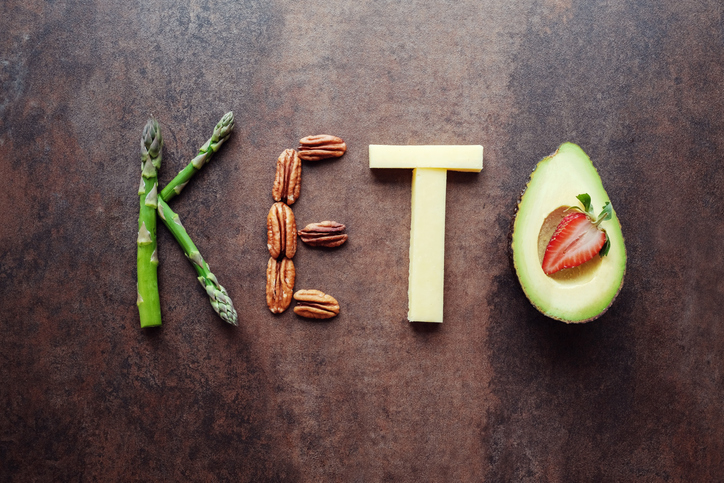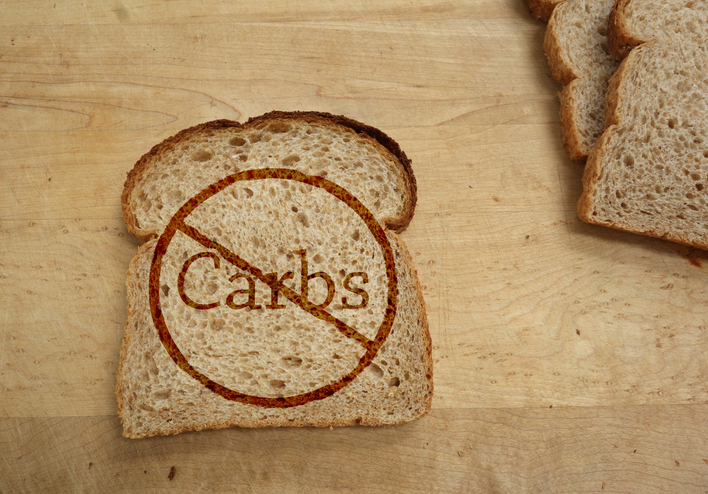You May Drop Pounds With Keto, But It Could Cost You Your Health

By Joy Stephenson-Laws, J.D., Founder
If you hop on Instagram and do a search with #keto, you will come across more than 23 million posts. Many of these posts feature beautiful, fit people showcasing appetizing looking low carb, high fat meals with animal protein such as chicken, steak and even processed meats such as bacon and salami. Bread and high sugar fruits such as pineapple are pretty much forbidden, and full-fat dairy is more than welcome.
The keto diet, short for ketogenic diet, is what I would call “the diet of the moment.” Celebrities such as Halle Berry, LeBron James, Kourtney Kardashian and more have also expressed their love for the keto diet.
I think for many people what is so appealing about the keto diet is that you can still eat delicious salty, fatty foods such as bacon and cheese but still lose weight. I have previously blogged about the keto diet, but this subject is definitely worth revisiting now. So many people are trying to drop those COVID pounds and may be thinking keto is the way to go.
In a nutshell, the keto diet is a very low carb, high fat diet.
“It typically includes plenty of meats, eggs, processed meats, sausages, cheeses, fish, nuts, butter, oils, seeds, and fibrous vegetables,” reports Harvard Health.
This diet eliminates many foods such as root vegetables and tubers (potatoes, sweet potatoes, carrots, beets and turnips), most fruits (blueberries in moderation are an exception), grains and legumes.

A keto diet causes the body "to release ketones into the bloodstream," according to Harvard Health.
"Most cells prefer to use blood sugar, which comes from carbohydrates, as the body’s main source of energy. In the absence of circulating blood sugar from food, we start breaking down stored fat into molecules called ketone bodies (the process is called ketosis). Once you reach ketosis, most cells will use ketone bodies to generate energy until we start eating carbohydrates again.”
Achieving a ketosis state may cause the body to drop weight rapidly, and reaching ketosis may take as little as three weeks, according to Northwestern Medicine.
But before you go tossing out all the carbs in your diet, a very thorough analysis of the ketogenic data, published in Frontiers in Nutrition, found evidence showing that the keto diet can be very risky for certain groups of people.
As you can probably imagine, with all of the meat and high-fat dairy the keto diet is high in saturated fat and LDL cholesterol. So if you are someone who has heart disease or is at a high risk of developing, the keto diet could be potentially risky to your health.
The main author of the study, Lee Crosby, does not sugar coat it. She strongly feels the keto diet is just plain unhealthy.
"The typical keto diet is a disease-promoting disaster," Crosby said, according to this Medical Xpress report that discusses the analysis.
"Loading up on red meat, processed meat, and saturated fat and restricting carbohydrate-rich vegetables, fruits, legumes, and whole grains is a recipe for bad health."
I agree with her because a balanced diet with healthy, complex carbohydrates are vital to our overall health and wellness. (Carbohydrates are one of the six basic nutrients you need to live. The others are protein, water, fats, vitamins and minerals).
There is some medical research which suggests that the keto diet may help manage epilepsy that is difficult to control, however, I think this may be an exception where the keto diet could possibly be classified as safe and healthy.
The Medical Xpress report discuss five key takeaways from the analysis about the keto diet.
5 key takeaways:- It is not necessarily a safe diet for pregnant women or women who plan to become pregnant due to low carb diets being linked to an increase in neural tube defects (even if the woman is taking folic acid).
- High protein diets such as keto may cause kidney failure in people who already have kidney disease.
- As mentioned, the keto diet may raise LDL cholesterol (the bad kind of cholesterol).
- Does not appear to be a diet that is good for the long term.
- And perhaps the biggest takeaway, “Restricting carbohydrate skews the diet toward cancer-causing foods. In fact, typical keto foods have been linked to an increased risk of heart disease, cancer, diabetes, and Alzheimer's—often the very diseases they are touted to help,” reports Medical Xpress.
This just goes to show you that you really cannot take diet and lifestyle advice from what you see on social media or what celebrities may do. Sure, the keto diet may help you lose weight and lose it fast, but this could come with a major price - your health and safety.
As always, discuss with a competent healthcare professional any diet you plan to follow (especially one that is restrictive or cuts out whole food groups).
Enjoy your healthy life!
Disclaimer: This article is not intended to provide medical advice. Please consult with your doctor or another competent healthcare practitioner to get specific medical advice for your situation.
The pH professional health care team includes recognized experts from a variety of health care and related disciplines, including physicians, attorneys, nutritionists, nurses and certified fitness instructors. This team also includes the members of the pH Medical Advisory Board, which constantly monitors all pH programs, products and services. To learn more about the pH Medical Advisory Board, click here.







